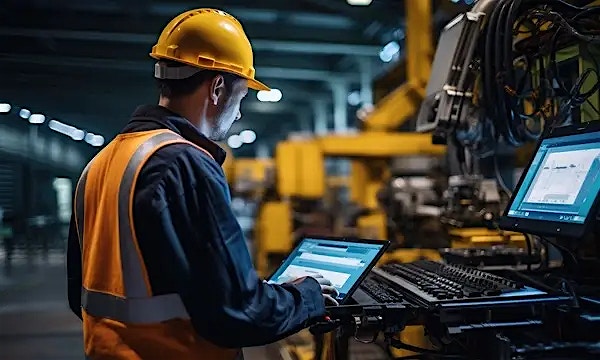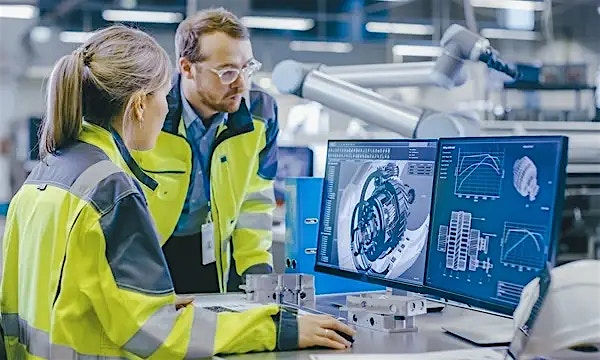With popular brands like Apple, Microsoft, Coca-Cola and Nike focusing on metaverse-driven marketing, the virtual environment became one of the largest marketing platforms during the pandemic.
It is no surprise that a Bloomberg report has predicted that the metaverse market will be valued at nearly $800 billion by 2024.
Understanding the metaverse for next-gen marketing
The metaverse is an immersive, 3D digital ecosystem that enables people to interact with each other on multiple connected platforms in real time. It leverages augmented and virtual reality (AR/VR) to create a virtual replica of the world, where people can interact with one another through digital avatars and buy virtual goods. To put it simply, the metaverse offers people the opportunity to dwell in a digital world identical to the real world.
This virtual world has presented marketers with unparalleled opportunities to discover new marketplaces and innovative ways to promote their products and services. An estimated 400 million active users visit a metaverse platform every month. The largest chunk comes from Roblox (230 million), followed by Minecraft (165 million), and Fortnite (85 million). So, it comes as no surprise that metaverse-driven marketing provides businesses with huge scope to reach and promote their products to this large audience. Through the metaverse, businesses can reach the millennial, Gen Z, and Alpha demographics with ease, as they are its primary users. They will play a key role in the expansion of metaverse marketing, as to attract them, brands will extensively promote and deliver their products and services in the metaverse.
Organizations can also create their own distinctive, immersive virtual worlds within the metaverse, representing their brands in a way that’s impossible through regular ads, images, videos, or words. These worlds enable enterprises to create their unique brand identity and engage with customers like never before. With the metaverse, enterprises can also decentralize from platforms owned by other companies, which allows them to carve out their own marketing niche.
However, with the fear of missing out on the wide range of advantages this platform has to offer, many companies are rushing into the metaverse, which may only sometimes be the right approach. Before moving to the metaverse, it’s necessary for companies to understand the offerings of the platform and whether they align with their long-term business objectives.
The metaverse as an imperative marketing technology
As the metaverse evolves, more and more people are expected to become its daily users. It stands to reason that the businesses that adopt this technology early will reap the most benefits.
Some of the industries that can benefit from metaverse marketing are as follows:
Retail
By enabling shoppers to try products in the metaverse through their digital avatars, online shopping can be brought closer to what can be accomplished in physical stores. Luxury brands like Dolce & Gabbana, Burberry, Gucci and Hermes have already started issuing NFTs, which allow customers to digitally own their products. In 2021, Gucci released Gucci Virtual 25, an exclusive, premium pair of digital sneakers.
In 2021, 21% of the retail market used the metaverse to provide customers with a more immersive shopping experience.
Entertainment and Media
As the metaverse continues to develop, the media and entertainment industry can leverage it to host concerts, screenings and similar events. Walt Disney has announced plans to create a theme park in the metaverse for their target audience utilizing smart devices and VR headsets.
Automotive
The automotive industry can arguably benefit the most from the metaverse. It can leverage the metaverse to create immersive, virtual reality showrooms. The immersive world of the metaverse can open new doors for the industry by enabling potential buyers to virtually test drive vehicles of their choice.
Financial Services
A report by Goldman Sachs and Morgan Stanley has estimated that the metaverse economy could be worth a staggering $8 trillion. The metaverse can change the face of traditional banking and financial services, by making the industry more people-centric. Instead of app-based alerts and text messages, banks and other financial institutions (FIs) can use technologies like AR/VR to connect with clients and stakeholders in a more personalized manner. Indeed, 47% of bankers believe that AR/VR will be used as an alternative transaction channel by 2030.
Gearing up for the metaverse with HCLTech
Leveraging our domain knowledge and expertise in technology, HCLTech has developed cutting-edge solutions so that our clients can utilize the full potential of the metaverse.
We are making significant investments towards the research and development of AR/VR through our digital platforms, data, cloud and IoT services. With our flagship startup ecosystem innovation platform and program, eSTiP™ (Ecosystem Innovation Program), we are actively collaborating with startups working in the metaverse space to co-create value, leveraging an open innovation model.
We are also investing in bringing a complete ecosystem of Web 3.0 and decentralized apps that will empower the future decentralized enterprises and realize metaverse leveraging capabilities such as blockchain, tokenization, smart contracts and decentralized identity.. HCLTech Metaverse solution, our metaverse platform, which is built on top of our acclaimed XRStudio solution, enables users to develop metaverse use cases in real time, through its extensive capabilities. It is a repository of pre-built components, 3D models, connectors, MMO, prebuilt algorithms and capabilities such as avatar customization, security, meta-analytics and integrations. HCLTech Metaverse solution uses HCLTech’s blockchain platform called COTRUST™ and tokenization solution called OBOL as the underlying decentralized capability to deliver an end-to-end metaverse solution for enterprise needs.
HCLTech Metaverse solution focuses on industrialized use cases for the financial services (FS), retail and consumer packaged goods (RCPG), hi-tech, manufacturing, and life sciences and healthcare (LSH) verticals. It delivers domain-centric capabilities on metaverse platforms in collaboration with Adobe and various other industry-proven platforms like SAP and Salesforce. It enables enterprises to deliver extended reality (XR) experiences at scale with reduced time to market and optimizes cost.
Into the future of meta-enabled collaboration
HCLTech’s collaboration with Adobe empowers our clients to utilize metaverse solutions and use cases that we envision today and beyond. This collaboration aims to enable our clients to leverage advanced cloud technology solutions to manage content, models, and publishing, among other areas. We can help you achieve your metaverse marketing goals through real-time segmentation and effectively running marketing campaigns to target audiences within the metaverse. We can also provide your organization with detailed insights to help you track marketing performances in the metaverse effectively.
Take the next step into the metaverse with HCLTech. Find out more about how we can help get you there, here.






